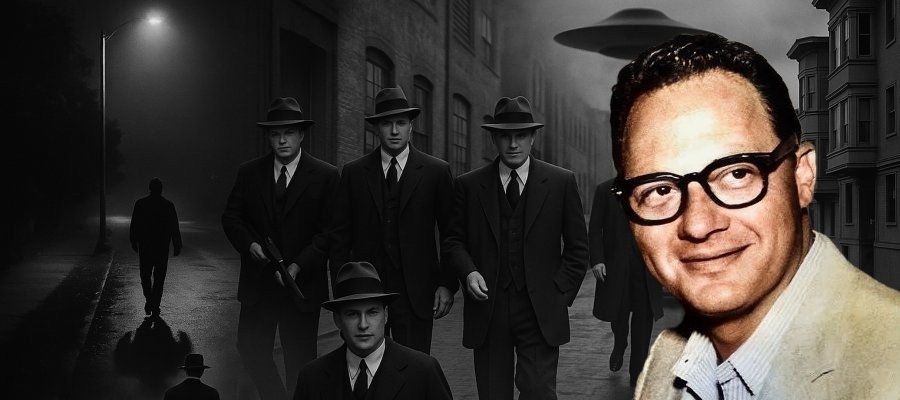
Quinn Martin
Quinn Martin, born Irwin Martin Cohn on 22 May 1922 in New York City, was one of the most prolific and influential producers in the history of American television. Best known for creating a distinctive format for crime and action dramas during the 1960s and 1970s, Martin’s work helped define a golden age of episodic network television.
Although born in New York, Martin spent much of his formative years in Los Angeles, California, where his family moved during his youth. He was the son of Martin Goodman Cohn, a film editor for MGM, which provided an early exposure to the entertainment industry. The influence of his father’s work in film would later prove instrumental in shaping his own career path.
He attended the University of California, Berkeley, where he studied English and journalism. His time at university was interrupted by military service during the Second World War, during which he served in the United States Army Signal Corps. After the war, he resumed his education, though his interests increasingly turned towards film and television production, although initially, he applied for a job, under the name Quinn Martin, at the Los Angeles Times.
Martin began his career working as a film editor at MGM (because the studio offered more money than The Times) before going on to post-production at Universal Studios and later at Desilu Productions, where his first wife, Madelyn Pugh Davis, was one half of the writing team behind I Love Lucy. Here he gained invaluable experience in television production and sound editing. By the mid-1950s, he had become an executive producer for the company. It was during his time at Desilu that he became involved in producing the first season of the television series The Untouchables, one of the era’s most acclaimed crime dramas. His work on that series, along with his admiration for tightly constructed narratives and character-driven stories, helped form the foundation of his later style.
Martin was notably influenced by the efficient storytelling of radio dramas, as well as the structure and pacing of classic film noir. He was a firm believer in the strength of weekly, self-contained stories that balanced plot with strong moral themes.
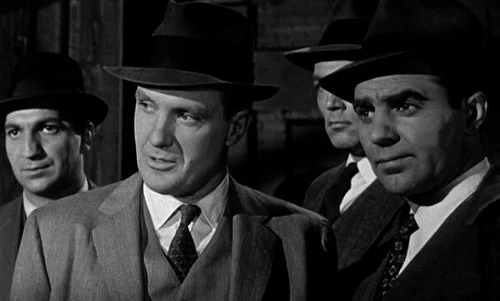
The Untouchables set the signature format of a Quinn Martin production for a good few years: a formal opening with a narrator announcing the title and guest stars, followed by a structure divided into four acts and an epilogue. However, Martin wasn't as involved with the series as legend has it. After that first season Jerry Thorpe, Leonard Freeman and future QM producer Alan Armer took over production.
In 1960, Martin founded Quinn Martin Productions, a company that would become synonymous with quality, high-rating television drama. Based in Los Angeles, QM Productions quickly established itself as a powerhouse of network television throughout the 1960s and 1970s.
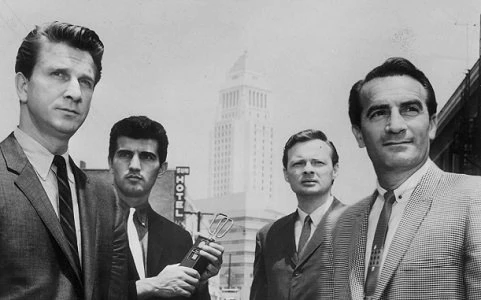
His first series under QM Productions was The New Breed (1961–62) which starred Leslie Nielsen as a police lieutenant for the LAPD's Metro Squad, an elite unit that used sophisticated electronic gadgetry to track down criminals.
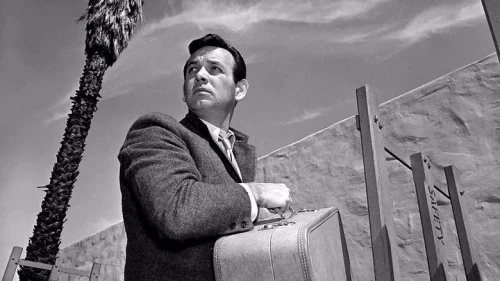
Among his other, more successful shows were The Fugitive (1963–1967), probably the most famous of all of them, it followed Dr Richard Kimble, a man wrongly convicted of murdering his wife. He escapes from custody and spends each episode on the run, trying to track down the real killer—the mysterious "one-armed man" — while staying one step ahead of the relentless Lieutenant Gerard. It was incredibly popular, not just because of the suspense, but because it had real heart. Viewers felt for Kimble, and the show's blend of action and emotional depth was ahead of its time. The final episode, where the story finally came to a dramatic close, was one of the most-watched broadcasts in television history at the time.
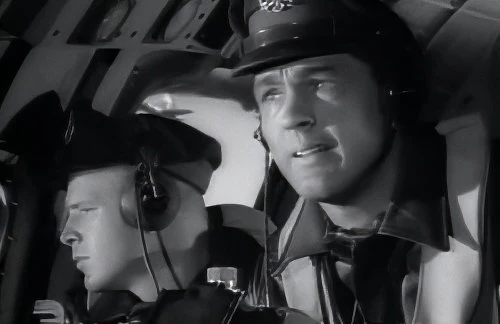
Twelve O'clock High (1964-67), was a World War 2 adventure about the missions of the fictitious 918th Bombardment Group of the U.S. Army Air Forces (USAAF), equipped with B-17 Flying Fortress heavy bombers, stationed at the RAF's Archbury Field base (also fictitious), in England.
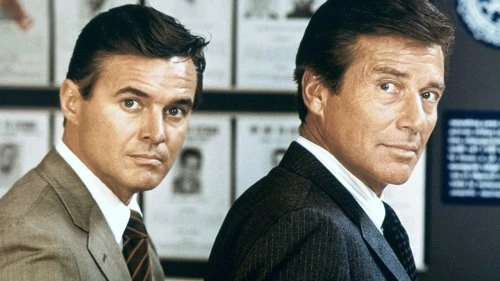
The FBI (1965–1974), was a long-running series that followed real cases from the files of the Federal Bureau of Investigation, dramatised for television. It was produced with the cooperation of the actual FBI, so there was always a sense of realism and formality to it. It wasn’t flashy, but it had a steady following and showcased the professionalism of the bureau—something J. Edgar Hoover, the FBI’s director at the time, was keen to promote.
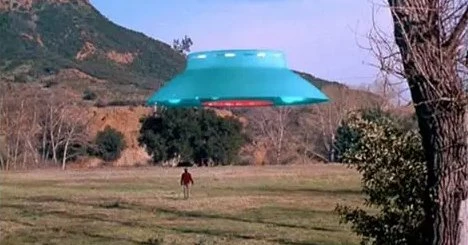
The Invaders (1967–1968), was a bit of a departure for Quinn Martin. This was a science fiction series about architect David Vincent, who stumbles upon an alien invasion and spends the rest of the series trying to expose the truth. The twist? No one believes him. The aliens looked just like humans, so he was constantly up against disbelief and danger. It had that same classic QM structure, but with flying saucers and shadowy conspiracies—perfect for the Cold War era.
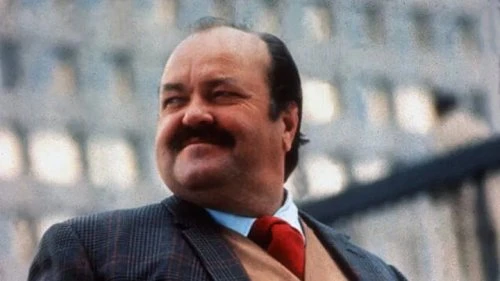
Cannon (1971–1976), introduced viewers to Frank Cannon, a private detective who didn’t quite fit the usual image of a sleuth. He was older, heavier-set, and exuded a calm, no-nonsense presence. But he got the job done. Played by William Conrad, Cannon was clever, resourceful, and always got his man—often with a combination of brains and brute force. It was one of those shows where you knew what you were getting, and that’s exactly why people loved it.

The Streets of San Francisco (1972–1977), paired the veteran actor Karl Malden with a young Michael Douglas as two San Francisco detectives from different generations. The show had stunning shots of the city, strong plots, and great chemistry between the leads. It tackled contemporary issues and had a bit more grit than some of Martin’s earlier work. It’s also credited with helping launch Michael Douglas’s career.
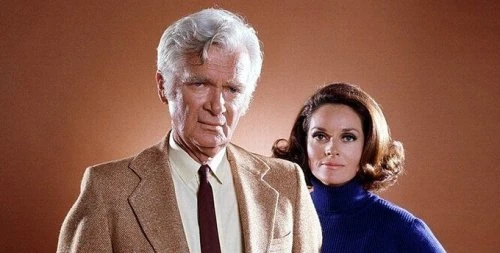
Barnaby Jones (1973–1980), followed the success of Cannon. Martin brought us another detective series—but this time with an older, retired investigator played by Buddy Ebsen. After the murder of his son, Barnaby comes out of retirement to solve the crime, then decides to stay in the business with his daughter-in-law. It was a gentler kind of crime drama, but still had that QM feel: clear storytelling, a sense of justice, and a likeable lead.
By the late 1970s, the television landscape was shifting. Martin sold QM Productions to Taft Broadcasting in 1978 and gradually withdrew from active production. He later taught at the University of California, San Diego, and maintained a low profile until his death. At the time, he had been contacted by Warner Brothers who were interested in making a movie of The Fugitive and wanted his assistance in negotiating the film rights. He was in the process of trying to seal the deal when he had a heart attack.
Martin died on 5 September 1987, aged 65, in Rancho Santa Fe, California.
Quinn Martin's legacy endures through the stylistic blueprint he left on television storytelling—particularly in the crime and action genres. His name, once a fixture in the credits of prime-time television, remains associated with a period when formulaic structure, consistent tone, and moral clarity dominated the airwaves. For many viewers, the words "A Quinn Martin Production" became a stamp of quality—and a promise that you were in for an hour of solid, satisfying television.
Laurence Marcus July 2025
Published on July 5th, 2025. Written by Laurence Marcus for Television Heaven.









